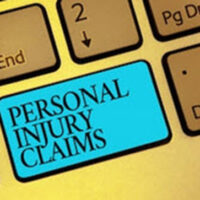When Evidence In Your Case Is Just Too Good It Could Be Excluded

In your personal injury trial, to win your case, the idea is to put forth as much evidence in your favor that you can. Evidence that helps your case or supports your allegations helps you, but so does evidence that hurts the other side, or which puts their side of the story in doubt.
But can any type of evidence be “too good” for your case, or “too bad” for the other side’s case? In other words, can evidence be so emotional, so persuasive, or so upsetting to a jury, that it just can’t be used in trial, regardless of how much it may help your case?
Highly Prejudicial Evidence
In fact, there is a rule of evidence just like this. It prohibits the jury from hearing information that is so highly prejudicial, or which may inflame the jury’s emotions to such an extent that it will cloud the jury’s ability to determine the case on the merits.
Examples of Prejudicial Evidence
Let’s look at an example.
Let’s say that a car hits a pedestrian who was crossing the street. The car driver wants to show the pedestrian ran across the street, carelessly, and thus contributed to his own accident. The car driver learns that the pedestrian was actually a drug dealer, and thus, it was likely that he was running across the street to conduct a drug deal.
If the jury were to hear that the pedestrian was a drug dealer, the jury likely would turn against the pedestrian, just because he was a drug dealer. While that may make logical sense, it isn’t something that the jury should consider; the jury’s feelings towards drug dealers ends up clouding the jury’s ability to rationally and neutrally consider the central question: Was the pedestrian in the road when he or she was hit?
Words Matter Also
Even words can have a big impact.
In many criminal cases, the state may want to refer to a shooter as “the killer” or “the murderer.” But those words carry a lot of impact, and until the Defendant is actually proven guilty, courts will generally not allow that kind of language to be used, as it could inflame the jury’s emotions.
Think of all the words that can be used; if someone is sued because they owe a debt, what if the side suing could call him or her a “deadbeat?” That would absolutely cloud the jury’s ability to make a neutral and fair decision.
Weighing the Evidence
Often, when evidence that is highly prejudicial is needed by a side in an injury case, the judge will have to look at the evidence first, and weigh how important it is, with how prejudicial it may be. The judge will often look at the evidence in private, hear arguments, and then decide whether the information should be heard by a jury.
Contact the Miami personal injury attorneys at Velasquez & Associates P.A. if you have an injury case that may end up going to trial.
Sources:
law.cornell.edu/rules/fre/rule_403#:~:text=The%20court%20may%20exclude%20relevant,or%20needlessly%20presenting%20cumulative%20evidence.
leg.state.fl.us/statutes/index.cfm?App_mode=Display_Statute&URL=0000-0099/0090/Sections/0090.403.html
